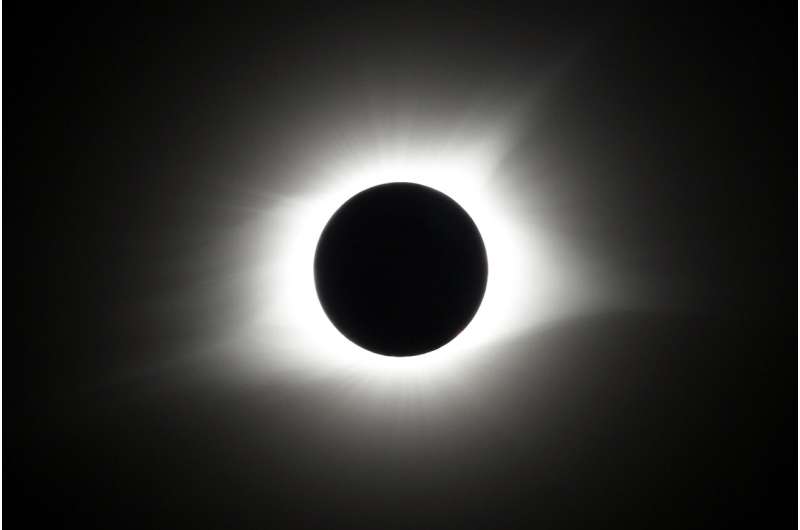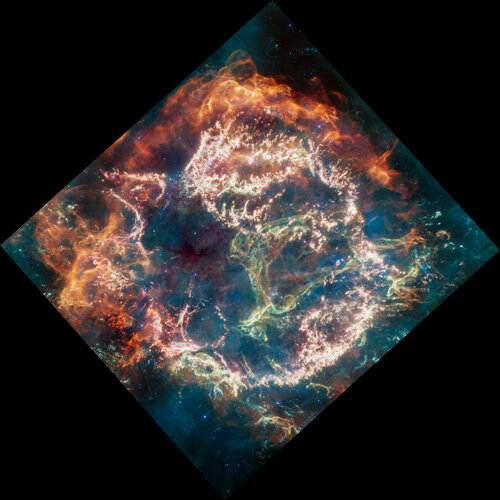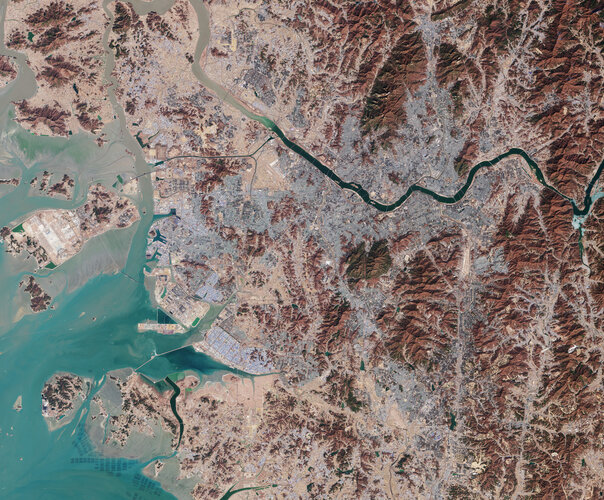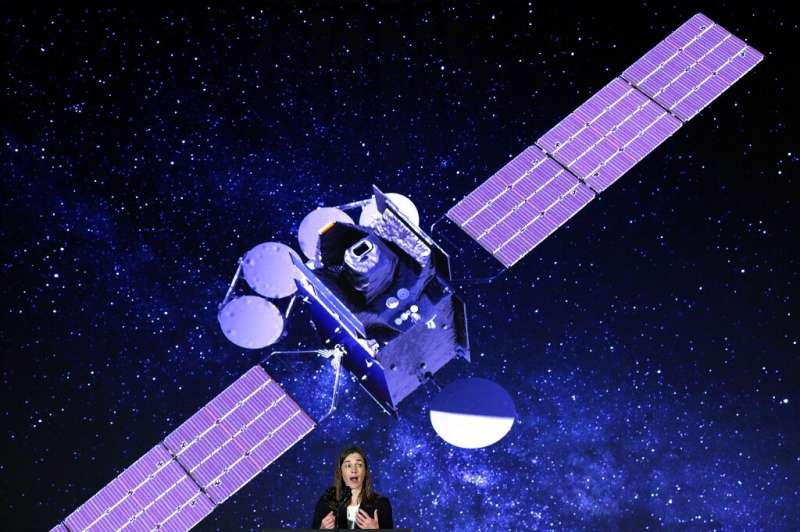NASA sets up Moon to Mars office
Saturday, 08 April 2023 23:35
As preparations for the Artemis 2 mission ramp up, NASA has established a congressionally mandated office to oversee planning for that and future missions to the moon.
Save the date: One year until total solar eclipse sweeps US
Friday, 07 April 2023 17:30
SpaceX launches Intelsat’s IS-40e high throughput satellite
Friday, 07 April 2023 16:32
SpaceX successfully launched Intelsat’s IS-40e communications satellite April 7, which will help the operator meet growing demand for connectivity on planes while also carrying its first hosted payload for NASA.
Two recent wargames hold timely lessons for space resilience
Friday, 07 April 2023 13:10
A comparison of two recent wargames reveals that the United States’ current course of action to ensure space resilience may not adequately deter and defend against emerging new Chinese space […]
Webb reveals new details in Cassiopeia A
Friday, 07 April 2023 13:00
The explosion of a star is a dramatic event, but the remains that the star leaves behind can be even more dramatic. A new mid-infrared image from NASA’s James Webb Space Telescope provides one stunning example. It shows the supernova remnant Cassiopeia A (Cas A), created by a stellar explosion 340 years ago.
Week in images: 03-07 April 2023
Friday, 07 April 2023 12:02
Week in images: 03-07 April 2023
Discover our week through the lens
Smelly seaweed bloom heads to Florida
Friday, 07 April 2023 11:30
A large mass of Sargassum ‘seaweed’ circling around the Gulf of Mexico may soon wash up along the US west coast near Florida – depending on the right combination of currents and wind. The bloom, which may likely be the largest ever recorded, is so large that it’s visible from space.
SpaceX closing in on first Starship Super Heavy launch
Friday, 07 April 2023 11:17
SpaceX offered its strongest signals yet that it is nearing the first full-scale launch of its Starship vehicle, now expected for later this month.
Makenzie Lystrup named first female director of Goddard Space Flight Center
Friday, 07 April 2023 11:07 Makenzie Lystrup has been named the first female director of the Goddard Space Flight Center in Maryland, NASA announced Thursday.
Lystrup will begin serving in the role immediately, succeeding Dave Mitchell, who has resumed his role as the chief program management officer at NASA's headquarters in Washington, D.C., NASA said in a news release.
"Goddard is an incredible center an
Makenzie Lystrup has been named the first female director of the Goddard Space Flight Center in Maryland, NASA announced Thursday.
Lystrup will begin serving in the role immediately, succeeding Dave Mitchell, who has resumed his role as the chief program management officer at NASA's headquarters in Washington, D.C., NASA said in a news release.
"Goddard is an incredible center an Second Axiom Space mission to ISS scheduled for May
Friday, 07 April 2023 10:44
Axiom Space’s second private astronaut mission to the International Space Station, commanded by a former NASA astronaut and including two Saudi astronauts, is scheduled to launch as soon as May 8.
Earth from Space: Seoul, South Korea
Friday, 07 April 2023 07:00 Image:
South Korea’s capital city, Seoul, and surroundings are featured in this image, captured by the Copernicus Sentinel-2 mission on 21 February 2023.
Image:
South Korea’s capital city, Seoul, and surroundings are featured in this image, captured by the Copernicus Sentinel-2 mission on 21 February 2023. Revealing invisible Himalaya glacier loss
Friday, 07 April 2023 06:00
New research reveals that ice being lost from glaciers that flow into lakes in the Himalayas has been significantly underestimated. This discovery has critical implications for predicting the demise of the region’s glaciers and for managing critical water resources.
Space-based NASA instrument to track pollution over North America
Friday, 07 April 2023 05:46
A Falcon 9 rocket successfully blasted off from Florida into space on Friday carrying a new NASA device that can track air pollution over North America down to the neighborhood level.
The launch, which took place at 12:30 am (0430 GMT), will bring into orbit the Tropospheric Emissions Monitoring of Pollution (TEMPO) instrument, which will allow scientists to monitor air pollutants and their emission sources more extensively than ever before.
The data will be used by the US Environmental Protection Agency, the National Oceanic and Atmospheric Administration and other agencies responsible for tackling atmospheric pollution.
NASA's high-resolution air quality control instrument launches
Friday, 07 April 2023 05:46
A Falcon 9 rocket successfully blasted off from Florida into space on Friday carrying a new NASA device that can track air pollution over North America down to the neighborhood level.
The launch, which took place at 12:30 am (0430 GMT), will bring into orbit the Tropospheric Emissions Monitoring of Pollution (TEMPO) instrument, which will allow scientists to monitor air pollutants and their emission sources more extensively than ever before.
The data will be used by the US Environmental Protection Agency, the National Oceanic and Atmospheric Administration and other agencies responsible for tackling atmospheric pollution.
SpaceX prepares for rehearsal, test flight of Starship rocket
Friday, 07 April 2023 04:05 SpaceX plans to carry out a launch rehearsal next week of Starship, the most powerful rocket ever built, and its first test flight possibly the following week, the private space company said Thursday.
SpaceX published photos of the massive Starship, which is designed to eventually send astronauts to the Moon and beyond, on its launchpad at the company's base in Texas.
"Starship fully sta
SpaceX plans to carry out a launch rehearsal next week of Starship, the most powerful rocket ever built, and its first test flight possibly the following week, the private space company said Thursday.
SpaceX published photos of the massive Starship, which is designed to eventually send astronauts to the Moon and beyond, on its launchpad at the company's base in Texas.
"Starship fully sta 
